Belgrade's downtown park is named after Russian Army troupe
A park in central Belgrade, near the monument to Tsar Nikolai II Romanov and the Russian House, was on Friday named after <a href="https://www.b92.net/eng/news/society.php?yyyy=2017&mm=11&dd=09&nav_id=102764" class="text-link" target= "_blank">the Ensemble Aleksandrov (Alexandrov).</a>
Friday, 10.11.2017.
15:28

Belgrade's downtown park is named after Russian Army troupe
Serbian Minister of Culture and Information Vladan Vukosavljevic, Deputy Mayor Andreja Mladenovic, and Russian Ambassador Aleksandr Chepurin spoke during the ceremony that was also attended by Serbian Defense Minister Aleksandar Vulin and Minister without Portfolio Nenad Popovic.Vukosavljevic - who launched the initiative to rename the park - said on Friday that the reason was "the sad memory of last December's tragedy - when 64 members of the 'Red Army choir' lost their lives (in a plane crash)."
He stressed that the Aleksandrov represented not only "one of the world's most important ensembles" - but were also "a great friend to the Serb people, ones who stood by us in our most difficult moments."
"There are great artists around the world - but great people, adorned by honorable virtues, are few. For that reason, the great imprint of the Aleksandrov Ensemble in the memory of the Serb people is indelible," Vukosavljevic said.
Serbs and Russians, he continued, are linked by their "collective memory" - and the great sacrifice that both nations made "in their fight for freedom, and integrity."
"We will continue to cooperate with Russia in the realm of culture even more intensively, and that will be a chance for Serbia and Russia not to be sitting on two chairs - as some would like to put it - but to do as we have always done," the Serbian minister said - in apparent reference to a recent statement, perceived as controversial in Serbia, by a US State Department official who said Serbia would "have to choose" between the East and the West and, "not sit on two chairs."
"We sit together, firm and united, on the throne of Slavic culture, together with other Slavic nations. We understand this as our obligation, our historic duty, and our particular pleasure," Vukosavljevic stressed.

Chepurin remarked that he spoke with Serbian President Aleksandar Vucic ahead of Friday's ceremony, and that they discussed the possibility of the space in Belgrade being modeled after Aleksandrovsky Sad (Alexander Garden) in Moscow itself - and thanked Belgraders and the city of Belgrade for the respect they showed toward Russia, the Russian Army, and the Aleksandrov Ensemble.
Deputy Mayor Mladenovic recalled in his address that last December - when the ensemble lost 64 of its members in a plane crash - Belgraders showed how much they appreciated, and how much they cared for, the Aleksandrov Ensemble.
"With various gestures we have demonstrated that we do not forget our friendship and our ties with the Russian people and the Russian Federation," he said, mentioning the monument dedicated to Russian sailors who were the first to join the defense of Belgrade and Serbia in WW1 in 1914 - raised in Belgrade's central Kalemegdan Fortress - and the work to repair the Russian Necropolis in the Serbian capital.
"We have not forgotten, either, our great (Russian post WW1 emigree to Serbia) architect Nikolai Krasnov, nor the people (Red Army soldiers) who liberated Belgrade in 1944, who gave us our freedom - neither (Red Army) General Zhdanov nor Marshal Biryuzov, who gave their lives, so that we can live today, free, in our own city, in our own country. We have not forgotten, either, (Russian) Tsar Nikolai II Romanov, who used his authority to save the Serbian Army and who contributed to it returning to Serbia victoriously, 100 years ago," Mladenovic said - apparently referring to Russia's last tsar warning France and Great Britain in 1915 that he would withdraw from the Great War unless these countries, capable of doing so at the time, helped use their ships to transport retreating members of the Serbian Kingdom Army, stranded in Albania in 1915, to Greece.
Those gathered on Friday in Belgrade honored the Aleksandrov members who died in the plane crash with a minute of silence. After this, the director and art director of the ensemble, Gennady Sachenyuk, and Svetozar Vasileski - the head of the Serbian Ministry of Defense Ensemble named after Stanislav Binicki - unveiled a memorial plaque at the park.
Russian and Serbian national anthems were then sounded, followed by the Aleksandrov choir performing iconic songs such as Russia's WW2-era "The Sacred War," Serbia's WW1-era "There, Far Away"(Serbian: 'Tamo, Daleko') - and, "Victory Day" - while the Stanislav Binicki Ensemble also performed "To Belgrade" - an ode to the Serbian capital.
Representatives of the Serbian government, the City of Belgrade, and the Embassy of the Russian Federation on Friday also planted birch trees in the park - a symbol of eternal life, and of their conviction that the Aleksandrov Park in Belgrade represented yet another link between the two nations and the two states.
Earlier in the day, Aleksandrov Ensemble representatives were received by Serbian President Aleksandar Vucic.










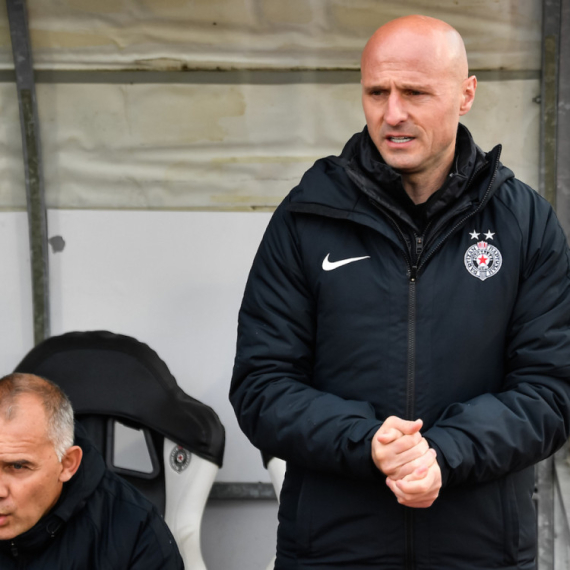
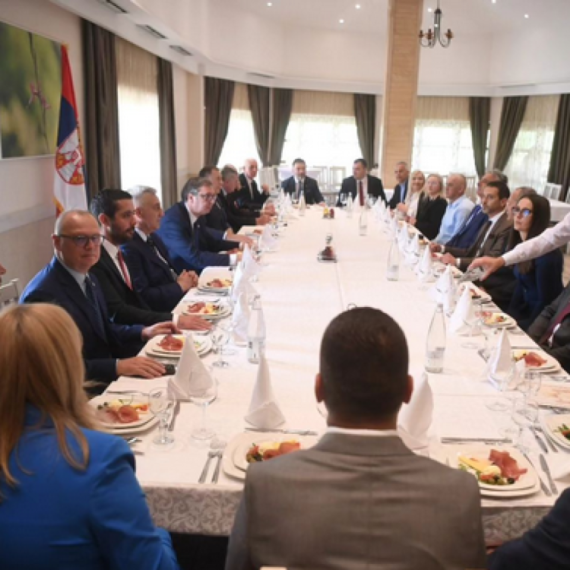

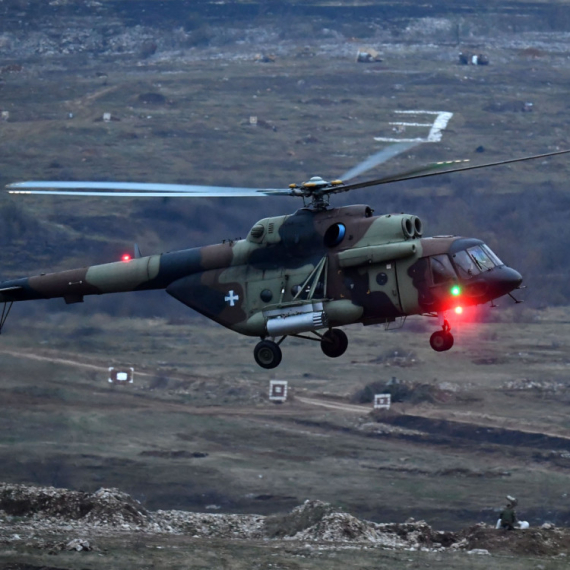

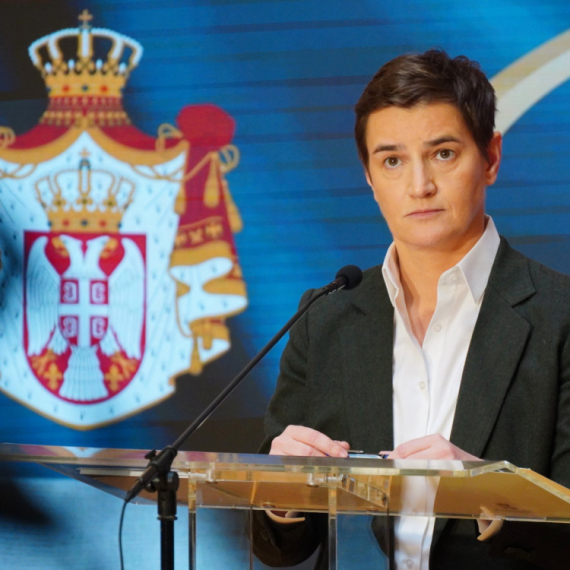

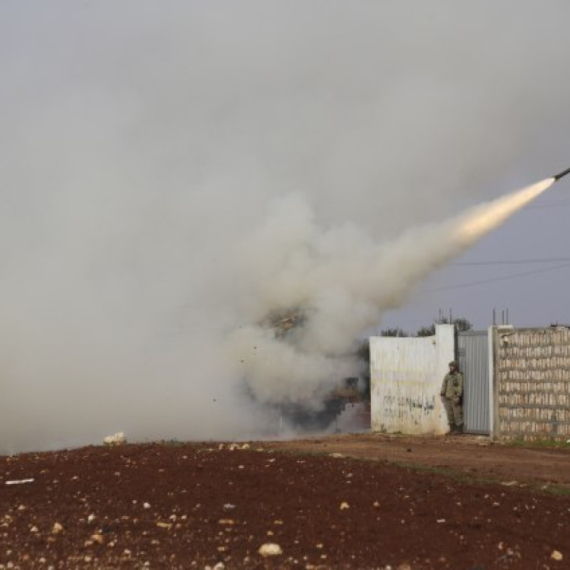

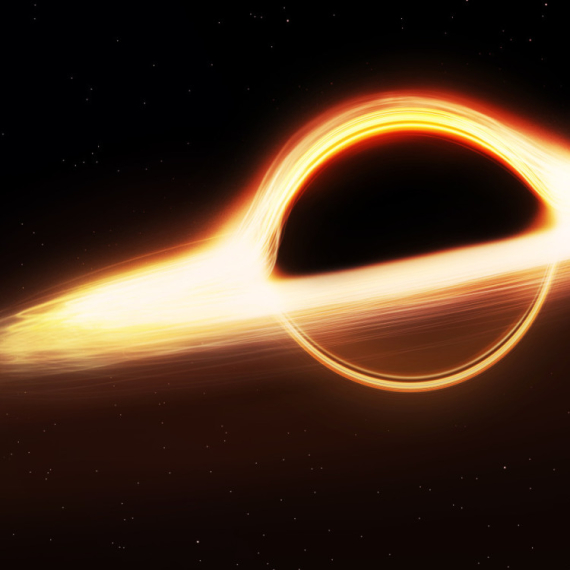
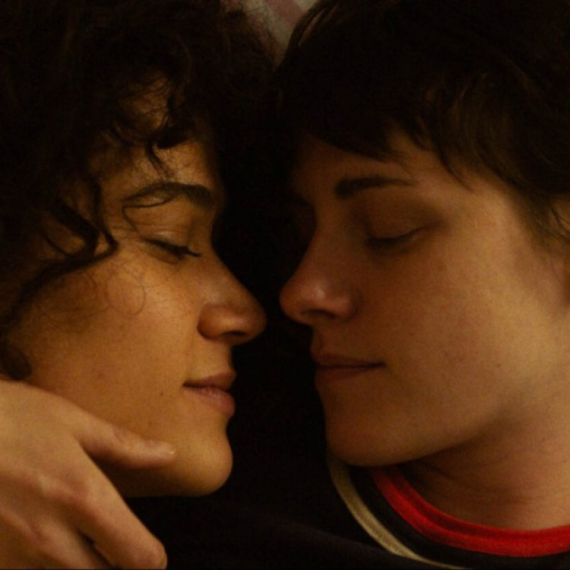

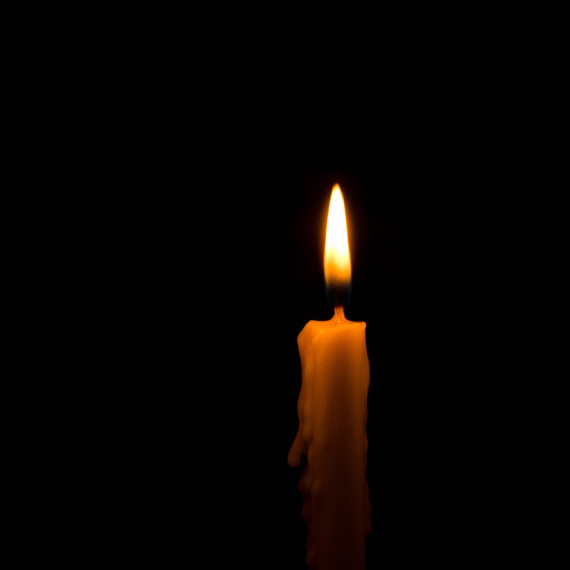








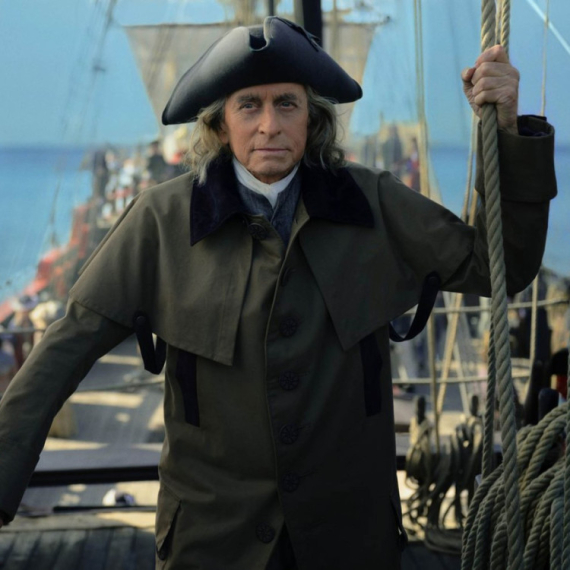






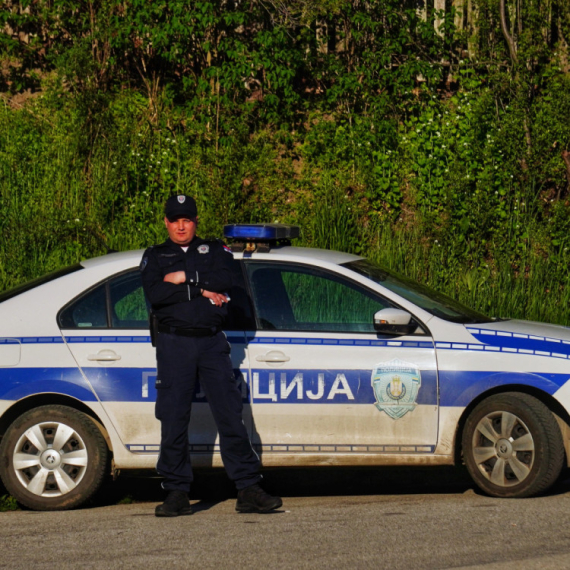
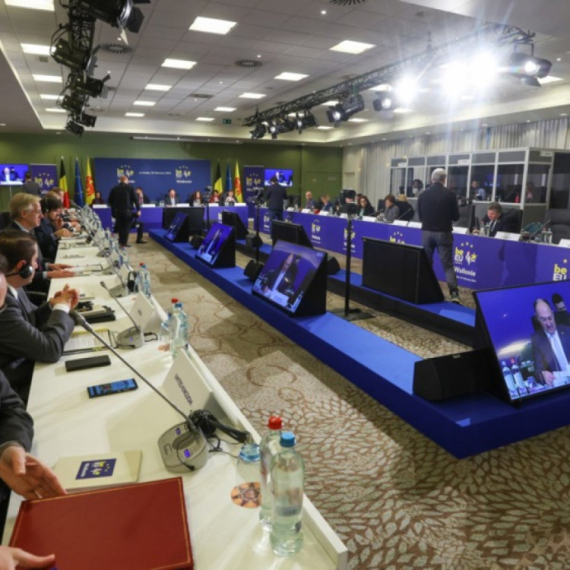
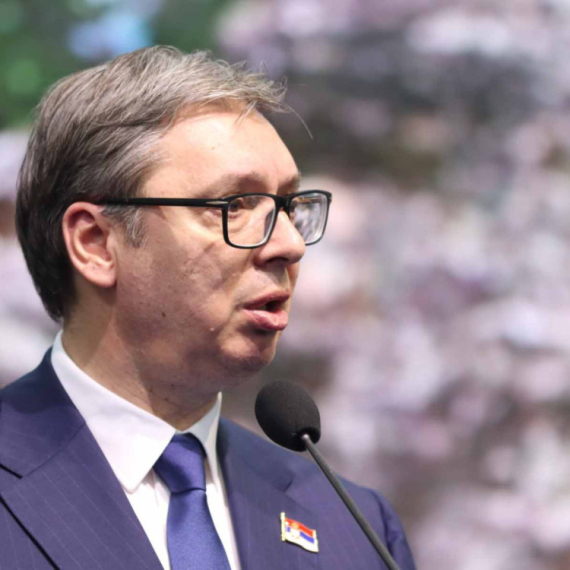
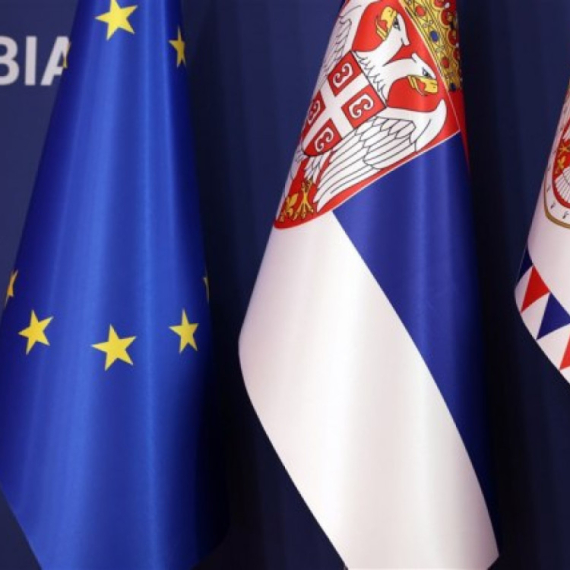
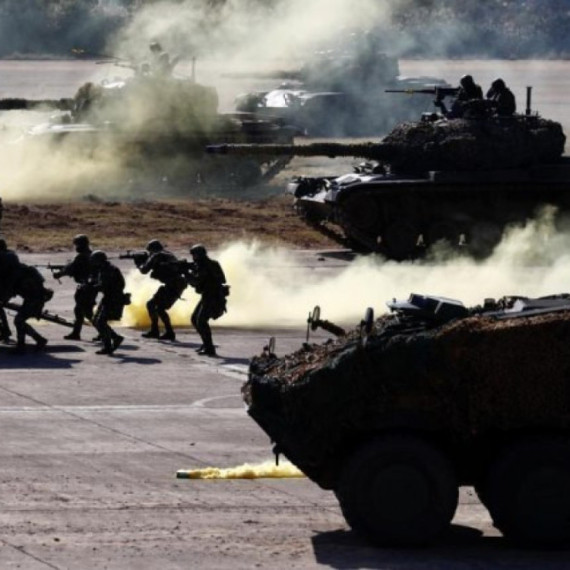
















Komentari 7
Pogledaj komentare